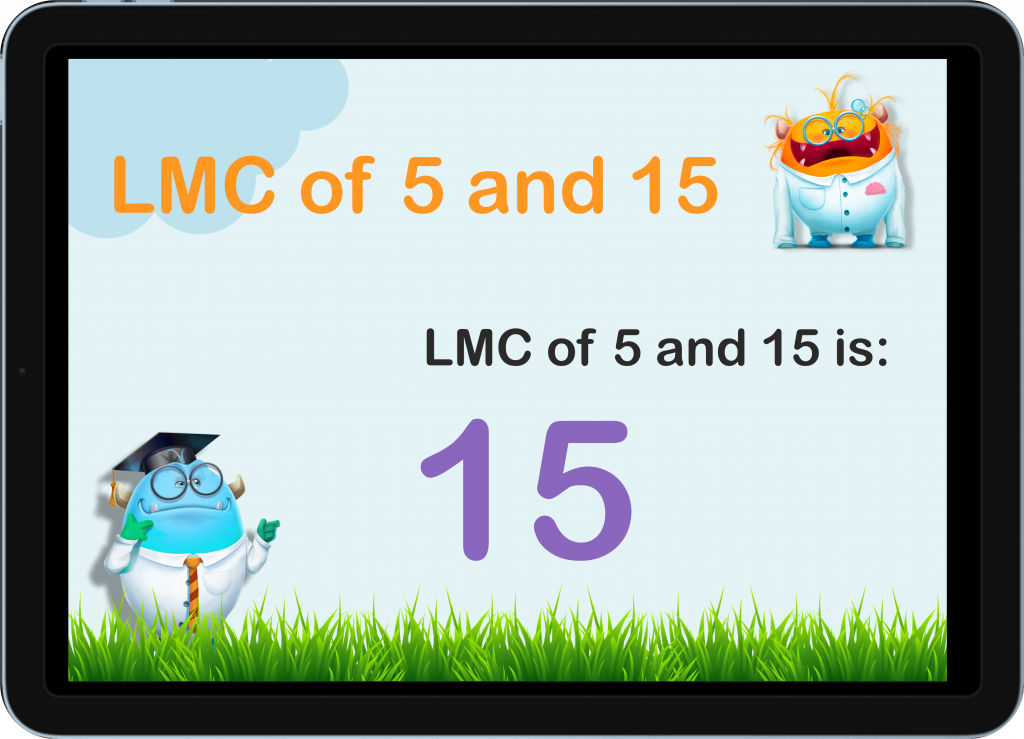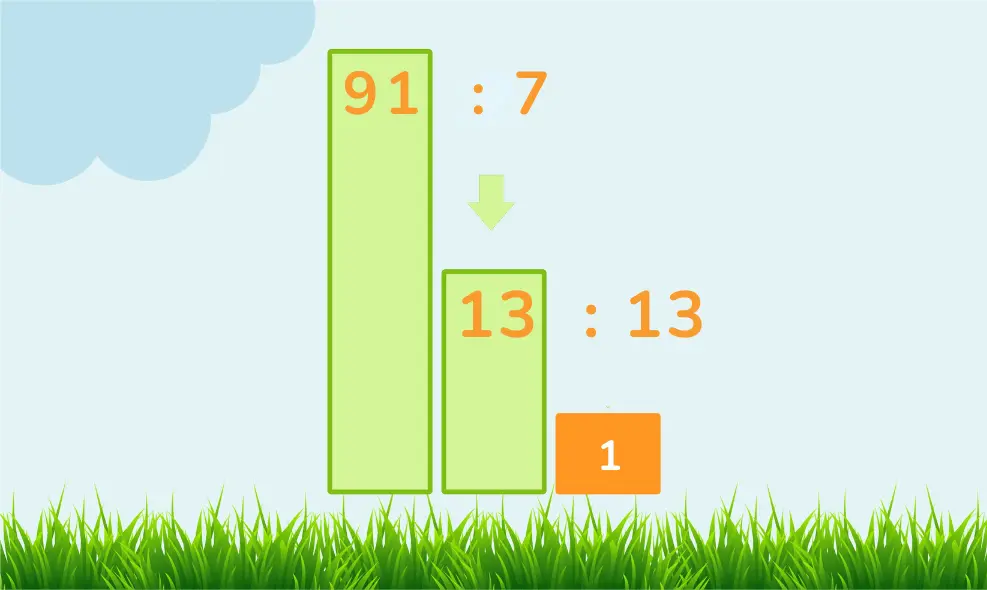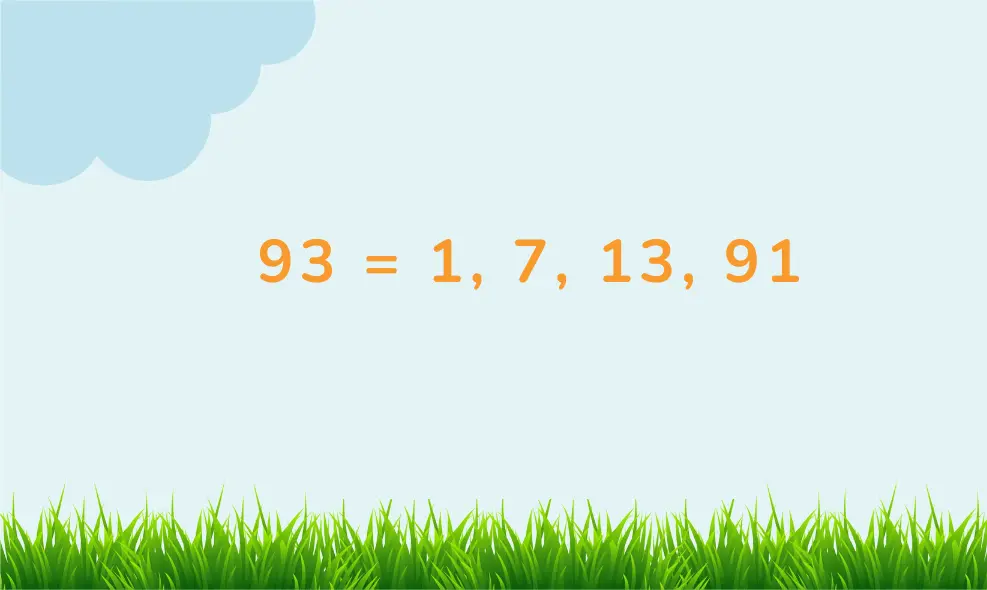Is 2 A Prime Number?
Prime vs. Composite Numbers
Greetings, young math enthusiasts! Today, let’s set sail on a mathematical voyage to determine if 2 is a prime number, and learn more about the difference between prime and composite numbers.

Is 91 a Prime Number?
Or is 91 a Composite Number?
Hi geniouses! Today, we’re going to explore the number 91 to determine if it’s a prime number. Numbers can be really intriguing, and learning about them is quite enjoyable. So, let’s dive into the basics of prime and composite numbers and uncover more about 91!


No credit card required

No credit card required
What Are Prime and Composite Numbers?
Is 91 a Prime Number?
Why is 91 Not a Prime Number?
What are the Prime Factors of 91?
What are the Factors of 91?
Does 91 Have 2 Factors?
Is 91 a Perfect Square?
What Type of Number is 91?
Fun Facts About 91
Is 91 a Semiprime Number?
Before we dive into 91, let’s go over what prime and composite numbers are. A prime number is any number greater than 1 that has only two factors: 1 and itself. Examples of prime numbers are 2, 3, 5, 7, and 11.
A composite number is any number that has more than two factors. This means it can be divided evenly by numbers other than just 1 and itself. Examples of composite numbers include 4, 6, 8, 9, and 12.
Is 91 a Prime Number?
To figure out if 91 is a prime number, we need to see if it can be divided by any numbers other than 1 and itself. Let’s check if 91 has any other divisors.
Why is 91 Not a Prime Number?
To see if 91 is a prime number, we can start by dividing it by numbers other than 1 and 91. Let’s try dividing it by 2. Since 91 is odd, it can’t be divided evenly by 2. Next, let’s try 3. When we divide 91 by 3, it doesn’t result in a whole number.
But when we divide 91 by 7, we get 13. This shows that both 7 and 13 are factors of 91. Because 91 has factors other than 1 and itself, it’s not a prime number. It’s a composite number.
What Are Prime Factors of 91?

Prime factors are the prime numbers that multiply together to make the original number. To find the prime factors of 91, we break it down into its prime parts.
We know that 91 divided by 7 equals 13. Since both 7 and 13 are prime numbers, the prime factors of 91 are 7 and 13.
What Are Factors of 91?

Factors of a number are numbers that can be multiplied together to get the original number. The factors of 91 are 1, 7, 13, and 91. This means multiplying 1 by 91 or 7 by 13 gives you 91.
Does 91 Have 2 Factors?
A prime number has exactly two factors: 1 and itself. Since 91 isn’t a prime number, it has more than two factors. The factors of 91 are 1, 7, 13, and 91.
Is 91 a Perfect Square?
A perfect square is a number that can be written as the product of an integer multiplied by itself. For example, 4 is a perfect square because it can be written as 2 × 2, and 9 is a perfect square because it can be written as 3 × 3.
To check if 91 is a perfect square, we need to see if there’s an integer that, when multiplied by itself, equals 91. After checking, we find there’s no such integer. So, 91 is not a perfect square.
What Type of Number is 91?
Now that we know 91 is not a prime number or a perfect square, let’s see what other types of numbers it is:
- Odd Number: 91 is odd because it’s not divisible by 2.
- Composite Number: We’ve learned that 91 is composite because it has more than two factors.
- Semiprime Number: A semiprime number is a composite number made from exactly two prime numbers. Since 91 = 7 × 13, it is a semiprime number.
- Natural Number: 91 is a natural number because it’s a positive integer.
- Whole Number: 91 is a whole number because it’s a non-negative integer.
- Triangular and Hexagonal Number: 91 is both a triangular number and a hexagonal number. This means it can form both a triangle and a hexagon in a dot pattern. It is also a centered hexagonal number, making it quite unique.
- Sum of Squares: 91 can be expressed as the sum of the squares of the first six integers: 1² + 2² + 3² + 4² + 5² + 6² = 91. It’s also the smallest number that can be written as the sum of six distinct squares.
- Palindrome in Multiple Bases: 91 is palindromic in bases 3 (101013), 9 (1119), and 12 (7712). A palindromic number reads the same forwards and backwards.
- Smallest Cabtaxi Number: 91 is the smallest positive integer that can be expressed as the sum of two cubes in two different ways if negative roots are allowed. This makes it the second cabtaxi number.
Fun Facts About 91
Here are five interesting facts about the number 91:
Atomic Number: 91 is the atomic number of protactinium, a rare and radioactive metal in the actinide series of the periodic table.
International Phone Code: 91 is the code used for making international direct dial phone calls to India.
Messier Object M91: M91 is a spiral galaxy with a magnitude of 11.5, located in the constellation Coma Berenices.
Psalm 91: Known as the Psalm of Protection, Psalm 91 is a chapter in the Bible that many people turn to for comfort and safety.
Money Value in Cents: If you have one penny, one nickel, one dime, one quarter, and one half dollar, you would have 91 cents in total.
These facts show how the number 91 is connected to science, communication, astronomy, religion, and even money!
Is 91 a Semiprime Number?
Yes, 91 is a semiprime number because it’s made from exactly two prime numbers, 7 and 13. This gives it a special place among composite numbers.
Learn More About Prime Numbers
© 2024 Smartick. All Rights Reserved.
